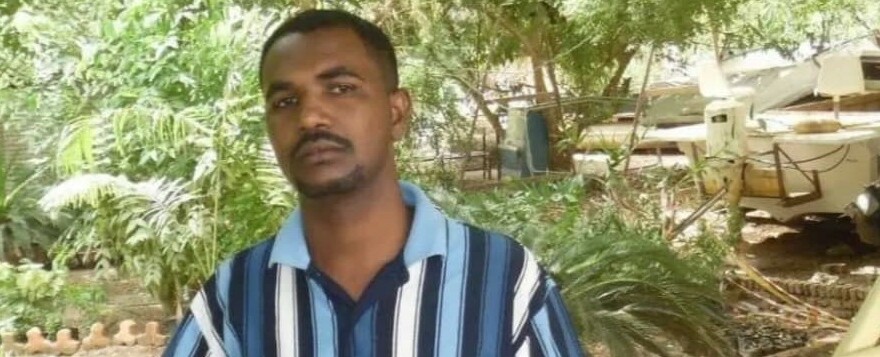In a candid interview, seasoned journalist Mohammed Al-Shinnawy shares his experiences amidst Sudan’s turmoil.
He reflects on leaving Khartoum, surviving harrowing events, and life in Atbara City. He offers insights into the challenges faced by many Sudanese citizens.
Below are edited excerpts from the conversation:
Question: Could you please introduce yourself?
Answer: My name is Mohammed Al-Shinnawy, and I am a journalist. Over the years, I have worked across various media platforms, including radio, television, and online. I have had the opportunity to engage in different forms of journalism throughout my career.
Q: Are you married with school-aged children? If so, where are they now?
A: Yes, I have a child who is a year and four months old. When the conflict erupted, he was just four months old. My sister also has school-aged children who were impacted by the situation. They have since left Sudan to pursue their education elsewhere. However, the disruption to their schooling and the overall turmoil have had a profound effect on them.
Q: How did you manage to leave Khartoum?
A: Leaving Khartoum posed significant challenges, especially given that I reside in the Jabra neighborhood in the southern part of the city that has been heavily affected by the conflict. The neighborhood is located near the Armoured Forces Camp which is a major military site housing various weapons.
Our first attempt to leave was via Soba Bridge. However, we were intercepted by Rapid Support Forces (RSF) personnel who turned us back citing potential clashes in the area. It was a harrowing experience as we had to navigate through the chaos while caring for our four-month-old child.
Our second attempt involved traveling with a group of families, each in a large vehicle with over 15 members. We journeyed eastward, eventually reaching the East Nile area. Fortunately, we did not encounter any military groups until we arrived there. Although the area was relatively calm initially, it has since become another conflict zone, with sporadic clashes occurring.
Q: Where are you currently residing?
A: I am currently based in Atbara City and occasionally visit Shendi City. However, there is little stability and I also find myself in Port Sudan City, which is part of the Red Sea State.
Q: Can you recall where you were on 15 April 2023?
A: 15 April was an exceptionally challenging day. At the outbreak of the conflict, I was in the Khartoum area amidst intense clashes and the thunderous sounds of heavy weaponry. The air was filled with terror, and there was indiscriminate shooting resulting in civilian casualties. It was a perilous and unsettling day.
As a journalist working for a television station, I remained on high alert for over three days, providing constant updates to the channel about the unfolding events in Sudan.
Q: What were you doing before the onset of the conflict?
A: Before the war, I was fully immersed in my role as a journalist, which has always been my primary profession.
Q: Where are you currently employed?
A: I am still working at the television station. However, the overall situation indicates that millions of Sudanese are now grappling with challenging conditions. Many citizens, including those in various professions and freelance work, have been profoundly affected by the war, making conditions extremely tough for most.
Q: How do you perceive the current situation?
A: It is undoubtedly challenging for anyone impacted by the war. Many of us have been displaced, seeking safety amidst economic hardships. We have scattered across different Sudanese cities in search of security. Rent prices have skyrocketed in response to the influx of displaced individuals, exacerbating our struggles.
I have experienced displacement firsthand, moving between East Nile, Wad Madani City, Shendi, and Atbara as the war unfolded. If the conflict persists, displacement will persist, and conditions will deteriorate further.
Q: What message do you have for those stuck in conflict zones?
A: To those in conflict or clash zones, I urge you to leave, as danger knows no boundaries. Countless Sudanese have fallen victim to these clashes, with many homes destroyed and civilians injured. Both sides must engage in dialogue to end this devastating conflict.
Q: Do you have hope for the future?
A: Honestly, I am pessimistic given the current political deadlock. Without a viable political solution, the situation will only deteriorate further. My hope lies in the cessation of the war and the restoration of normalcy to our lives.




